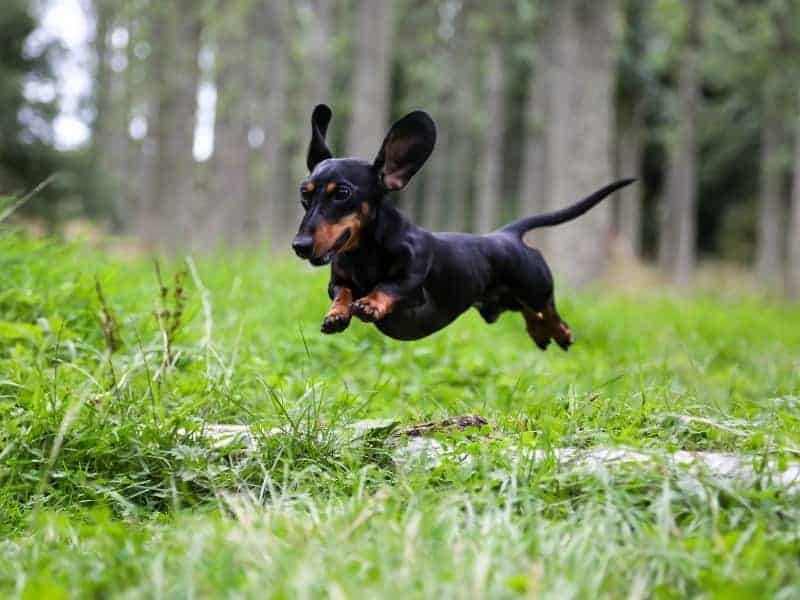Are Dachshunds Good House Dogs?

Dachshunds, with their distinctive long bodies and short legs, are one of the most recognizable dog breeds. Known affectionately as "wiener dogs," these lively and charismatic companions have captured the hearts of many dog enthusiasts worldwide. But are dachshunds good house dogs? This article delves into the characteristics, needs, and lifestyle considerations of dachshunds to help you decide if this breed is the right fit for your home.
Characteristics of Dachshunds
Origin and History
Dachshunds were originally bred in Germany to hunt badgers, a task that required both determination and tenacity. Their name literally translates to "badger dog" in German. Over time, they evolved from hunters to beloved companions, known for their intelligence and playful nature.
Physical Traits
- Size: Dachshunds come in three sizes: standard, miniature, and kaninchen (rabbit), with weights ranging from 8 to 32 pounds.
- Coat Types: They have three coat varieties—smooth, long-haired, and wire-haired—each requiring different grooming needs.
- Lifespan: Typically, dachshunds live between 12 to 16 years, making them a long-term commitment.
Temperament
Dachshunds are known for their bold and curious nature. They are often described as clever and lively, with a penchant for playfulness. However, they can also be stubborn, a trait that traces back to their hunting roots. Their protective and alert demeanor makes them excellent watchdogs, but this can also lead to excessive barking if not managed properly.
Quick Info Table: Dachshund Traits
| Trait | Description |
|---|---|
| Origin | Germany |
| Average Lifespan | 12-16 years |
| Sizes | Standard, Miniature, Kaninchen |
| Coat Types | Smooth, Long-haired, Wire-haired |
| Temperament | Bold, Curious, Playful, Stubborn |
| Exercise Needs | Moderate |
| Grooming Needs | Varies by coat type |
Understanding Dachshunds as House Dogs
Exercise and Activity Levels

While dachshunds may not require as much exercise as larger breeds, they still need regular physical activity to maintain a healthy weight and prevent boredom. Daily walks and interactive playtime are essential. Their hunting instincts mean they enjoy activities that challenge their minds and bodies, such as scent-tracking games or puzzle toys.
Space Requirements
Dachshunds are well-suited to both apartments and houses, thanks to their moderate exercise needs and compact size. However, their environment should be enriched with toys and opportunities for exploration. It's important to note that their long backs make them susceptible to spinal injuries, so homes with lots of stairs may require gates or ramps to prevent jumping.
Socialization and Training
Early socialization is crucial for dachshunds to develop into well-rounded dogs. They can be wary of strangers and other animals if not properly socialized from a young age. Training can be challenging due to their independent streak, but consistency and positive reinforcement can yield great results. Given their intelligence, dachshunds often excel in obedience training when motivated with treats and praise.
Health Considerations
Common Health Issues
Dachshunds are generally healthy, but they are prone to certain genetic conditions, especially intervertebral disc disease (IVDD) due to their elongated spines. Regular veterinary check-ups and maintaining a healthy weight are vital to mitigate these risks.
Diet and Nutrition
A balanced diet is essential for dachshunds to maintain their health and vitality. Due to their predisposition to back problems, keeping them at an ideal weight is crucial. Feeding high-quality dog food appropriate for their age, size, and activity level is recommended.
Balancing Work and Dachshund Care
Managing Alone Time
Dachshunds are known for forming strong bonds with their families and may suffer from separation anxiety if left alone for long periods. Ensuring they have plenty of mental and physical stimulation can help alleviate this. If you're away frequently, consider hiring a dog walker or enrolling your dachshund in doggy daycare.
Family Dynamics
Dachshunds can make wonderful family pets, but they may not be ideal for families with very young children. Their small size makes them vulnerable to rough handling, which can lead to defensive behavior. Older children who understand how to gently interact with pets are a better match.
Conclusion
Dachshunds can indeed make excellent house dogs for the right family. Their charming personalities, moderate exercise needs, and adaptability to various living environments make them a popular choice for dog lovers. However, owning a dachshund comes with responsibilities, particularly in preventing health issues and managing their spirited personalities.
In summary, if you are prepared to invest time in training and socializing, and can provide a safe and stimulating environment, a dachshund can be a delightful and loyal addition to your home. As with any breed, understanding their unique needs and characteristics is key to ensuring a happy and fulfilling relationship for both you and your dachshund.



Comments ()